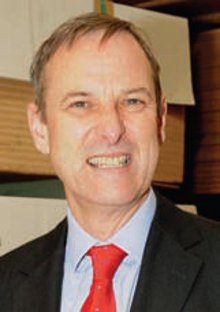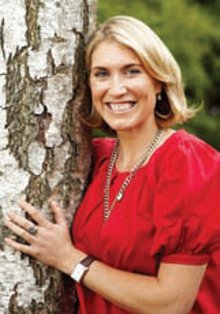Hot tropical topics
24 August 2013TTJ asked suppliers, major buyers and an NGO for their views on tropical timber and wood product procurement and use and found they were topics under scrutiny as never before.
Chris Cox, TIMBMET Head of Environment
Implementation of the EU Timber Regulation (EUTR) has increased awareness and responsibility for sourcing sustainable and legal tropical timber and wood products.
Customers are generally more suspicious about products as a result of the Regulation. They want to cover themselves as they are often aware of a 'legal' issue, but are unsure as to the degree to which they might be liable.
As a result, there is increasing demand for information about tropical timber's credentials and origin. Most, however, are satisfied with a 'comfort letter' stating that Timbmet is dealing with these issues on their behalf.
We've seen steady growth in certified products being offered by tropical suppliers, and also sharp growth in country-specific legality schemes to assist in access to markets post-EUTR.
We market certified products as such, where appropriate, but have to be careful not to describe these as EUTR-compliant, as operators can only say they have endeavoured to undertake due diligence to meet the legal requirements of the Regulation.
We will be promoting our involvement with the Helveta Digital Passport project as an example of our proactivity in due diligence. This is an online-based tracking system, containing all the information about the timber's origin, and covering each stage it travels along the supply chain.
In the years ahead, I see log shortages in some species, with only smaller sizes available. As a result, there will be a move from natural forest-sourced tropical timber to plantation-grown tropical or temperate species
It will be a smaller market, but more high value and with an increased focus on certified and engineered products, such as the Timbmet Engineered Components range which represents the way forward to squeeze more value out of the legally available resource.
Joanna Yarrow, IKEA UK and Ireland Head of Sustainability
IKEA uses around 0.7% of the world's total commercial timber supplies, making us one of the largest users in retail, and our customers are increasingly interested in products' provenance, often asking [specifically] about tropical timber.
In fact, we use tropical material in very few products, mainly in our outdoor range. For this we use acacia, from plantations only in South-east Asia.
In line with our People & Planet Positive sustainability strategy, we place great emphasis on responsible sourcing and apply the same minimum requirements to all timber supplies. These must not be from forests that have been illegally harvested, operations engaged in forest-related social conflicts or commercial genetically modified tree plantations, or intact natural or high conservation value forests, unless certified as responsibly managed. We also won't use wood from tropical or sub-tropical natural forest being converted to plantations or non-forest use.
We believe that using responsibly sourced timber can help maintain tropical forests by enhancing their economic value. However, because we perceive the risk of illegal timber and forestry practice to be high in most tropical regions, we require that wood sourced there is also FSC certified.
Our aim is to source 50% of wood from preferred sources (FSC certified or recycled) by 2017.
New legislative requirements such as the EU Timber Regulation (EUTR) and Lacey Act have required us to adjust administrative procedures and documentation. But they also help us convince suppliers to direct adequate resources to ensuring wood legality.
Stephen Cawley, John Lewis Head of Sustainability
John Lewis is committed to using raw materials that have been managed sustainably and we welcome the EU Timber Regulation, as such legislation rewards good producers and encourages global improvement in forestry management.
We have a large and complex timber supply base, so keeping track of where all the timber comes from and that it has been legally sourced is a huge undertaking. Recognising the importance of this, we revised our timber policy in 2008 to ensure that all timber we use has been sourced with the least possible damage to the natural environment.
By 2020 we aim to source all timber products from certified sustainable sources and we have developed a three-stage timber supplier assessment system, which helps all suppliers move towards independent certification, such as FSC, in a progressive manner.
This strategy is making good progress, having started with our outdoor furniture range, which is typically made from tropical hardwoods, such as teak. We have supported development of plantation timber use and, since 2010, ensured that all our outdoor furniture range is certified under the FSC scheme, the most widely recognised forest certification system.
Paul-Emmanuel Huet, Rougier Social and Environmental Manager
Customers have been asking more about the environmental aspects of our products for a while, and definitely since the EU Timber Regulation came into force.
What they are looking for in products from our African concessions is evidence of environmental credentials that keeps their due diligence process and documentation as short and simple as possible. Therefore, more customers are asking for certified sustainable and verified legal products.
All our Congo Basin concessions are now 100% third-party certified for traceable legality, or legality and sustainability. We took a further major step in March by achieving FSC certification of three forest concessions managed by our subsidiary SFID in Cameroon. These cover 285,667ha of forest and certification enables us to offer a full range of FSC products, including logs and sawn timber from traditional Cameroon species, and machined products in species such as ayous, sapele, tali, frake and okan. These comprise laminated, finger-jointed sections, decking, CE-marked joists, and KOMO-certified finger-jointed solid blocks.
We are also focusing strongly on our environmental record in marketing and now include all our legality and sustainability certificates online at www.rougier.fr.
Fiona Wheatley, Marks & Spencer Sustainable Development Manager
Our timber policy requires suppliers to meet our commitment that all wood is sourced responsibly, which means that it's either recycled, FSC certified or otherwise protects forests and communities.
Our standards apply to all the wood and paper we sell and use and equally to all regions of the world.
Tropical timber itself comes from an enormous geographical area and it would be unreasonable to treat all tropical countries the same. However, we do recognise that some countries are better governed and pose less of a risk of illegal trade.
We know that timber provides economic prosperity in many regions of the world and can provide a pathway from poverty for many small communities. So we are strong supporters of FSC because of the difference it can make not only to nature, but to people whose existence or livelihood depend on the forest resource. We believe it remains the gold certification standard.
The new EU Timber Regulation has also been helpful, however, in that it expects all wood users to manage their sourcing. We will not accept wood without provenance and look forward to that becoming the norm.
Jez Cutler, Travis Perkins Group Environment Manager
Travis Perkins sees tropical timber as being higher risk in terms of illegality and sustainability. Governance in producer countries is often weaker, timber values are higher and the ecology of the forests more complicated.
Our tropical products include marine ply, although to stress, most of our hardwood ply does not comprise tropical species. Cores of some doors are also still tropical timber, as are small amounts of mouldings and sawn timber.
Most customers see buying responsibly as important, and we try to be open to them about our procurement and sourcing policy, our targets and performance. For instance, we would certainly explain why we are declining to quote for a job if we unable to get the timber responsibly.
We do not have a specific procurement policy with regard to tropical timber, but we risk assess all purchases and won't buy if the risk is not mitigated.
The implementation of the EU Timber Regulation has been chastening and we are now checking all our purchases more closely and, yes, we are targeting tropical timber products in particular.
Our default position for tropical timber and wood products is FSC- or PEFC-certified. We understand these schemes and are invested in them.
But from our perspective, the timber industry's message that using tropical timber helps maintain the forests, if legally and sustainably sourced, remains ambitious. It's difficult to sell when there's still so much uncertified hardwood around.
Peter Latham, James Latham PLC Chairman
The tropical hardwood sustainability and legality story has improved beyond recognition recently, with the increase in FSC certification and third-party verification of legal origin in Africa, the spread of PEFC certification in Peninsular Malaysia and introduction of the SVLK legality assurance scheme, backed by work on legality through the EU FLEGT process, in Indonesia.
Our latest development has been to formalise our due diligence process as part of ISO procedures and we're also demanding a minimum of third-party legality verification from high-risk areas.
Market attitudes on tropical timber divide three ways: the 'don't cares'; those that have bought the good news story; and those who have decided the right thing to do is to stop specifying it. Our challenge is to convert the first group with the threat to reputation posed by the EU Timber Regulation (EUTR), and the latter group by demonstrating the progress certification has made - a task made no easier, however, by Danzer's recent FSC disassociation.
We are asked about the environmental credentials of tropical timber products by customers and even if they don't ask, they get told - we focus strongly on these issues when we promote them. The EUTR has resulted in more customer questions, although there seems to be widespread misunderstanding about the respective requirement it places on 'operators', and 'traders'.
Our strategy is also to offer more processed products to get more value through the supply chain, improve scarce material utilisation and bring benefits of improved stability and known waste factors to customers.
In the future, tropical hardwood will be more expensive and used where its beauty and technical performance are required. It will feature more in engineered products and there will be increased substitution with modified softwood.
Julia Young, WWF Global Forest & Trade Network UK Manager
Sound production forestry has a critical role to play in keeping living forests, but forest governance - delivering equitable land tenure and rights to resources - is a major challenge in many tropical countries due to corruption and poor law enforcement.
So what can be done?
We support the EU FLEGT VPA initiative to help producer countries work for better forest governance and management. The EU Timber Regulation also has significant potential to contribute to this if effectively enforced. But China's and India's actions are also required to impact the market at a global level.
Compliance with legality legislation should also not detract from efforts to achieve sustainability. For tropical timber, ultimately we still say buy FSC in preference to anything else.
If we want a world rich with forests which are sustaining inclusive, green economies, there are further actions that trade, government and NGOs can continue to drive together. For WWF, this includes developing and supporting verification for sound forestry, where certification of sustainable forest management is not feasible, allowing values-based forest investments to flow, demanding increased transparency in supply chains, imports and consumption related to forests, and getting businesses to take account of their dependency on sustainable materials supply.
In our Living Forests report, WWF has outlined targets to tackle deforestation and forest degradation collaboratively with business, government and civil society. This states that by 2020, the timber sector must have eradicated illegal and irresponsible trade in the UK and increased trade in sustainably-produced timber considerably.







